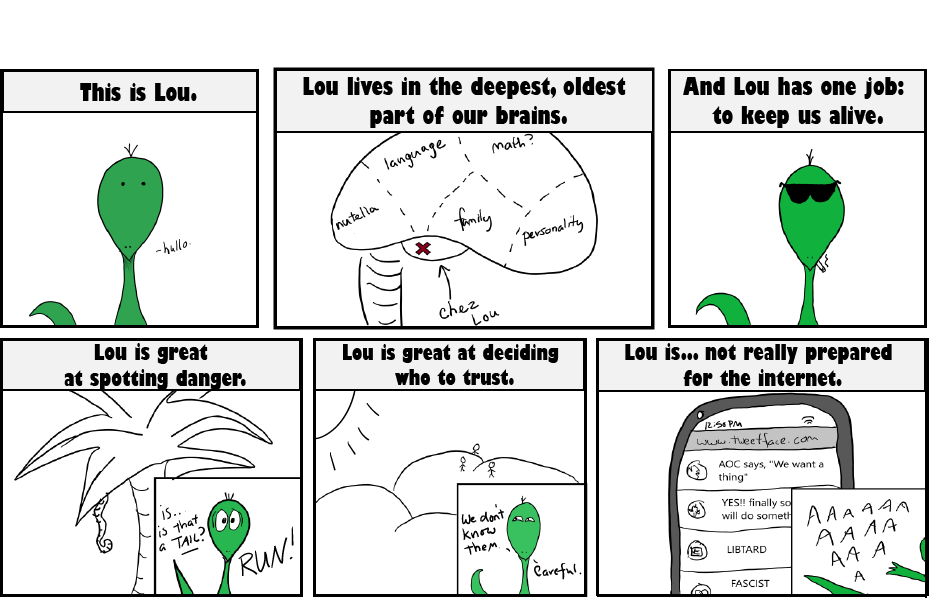Dirty Disinfo Tricks
You can learn to spot dirty disinfo tricks.
Disinfo fools all of us at one time or another. Even really smart people with PhDs.
That’s because bad actors have developed a set of tricks that work really well.
Our #DirtyDisinfoTricks cards are here to show you the tricks, and how to spot them. Once you know about them, they get easier to spot.
You don’t need to be an expert. Just knowing about them makes you less likely to get fooled.
A little practice, and you’ll be amazed how good you can get at this….
DDTs exploit human nature. They’re designed to distract us, usually appealing to what’s been referred to as our “lizard brain.”
Our brains have shortcuts that help us navigate the world quickly and efficiently. Bad actors who spread lies have learned to trick our rapid response system and slip past our reason and analytical abilities. This is why propaganda is so effective. People who are well educated and highly intelligent get fooled roughly about as often as anyone else.
The rapid response brain – what some call the “lizard brain” – that’s the part of us that’s all about survival. It’s designed to keep us safe and rapidly detect and respond to threats. It also manages every day tasks so we have energy to deal with new or complicated situations.
We’re going to call this part of the brain “Lou.” Lou is all about safety and belonging. Lou often responds emotionally. Lou also manages our fight, flee or freeze instincts.

#DirtyDisinfoTricks manipulate Lou. That’s not only malicious, it’s actually dangerous. If people are only using Lou to make decisions – instead of their more discerning reason and analytical brain – they’re not thinking clearly. They’ll distrust experts and each other, and make poor decisions about politics, health and other issues.
Some examples of DDTs:
- Repetition – someone repeats something bad so often it begins to seem good. Hitler was a master at this, and people still use it today.
- Fake Expert – when an expert in economics talks about how COVID works. They’re an expert, sure, but not on disease – so this is just fluff. Here is a petition against the science of climate change. They claim it is signed by scientists. But only 3% of the signatures are from scientists – and most of them are not climate scientists. They are veterinarians or metallurgists.
- Insults – instead of talking about a problem, someone goes on about how dumb/ crazy/ ugly their opponent is. Fun to listen to, but ultimately – not the point. Here’s a great example: if you make fun of someone’s hair, you can avoid considering their ideas.
- Muddying the Waters – bringing up something irrelevant, to try to avoid fixing an issue. Example: there’s an anti-conservative conspiracy afoot because some politicians’ emails are going to spam folders.
